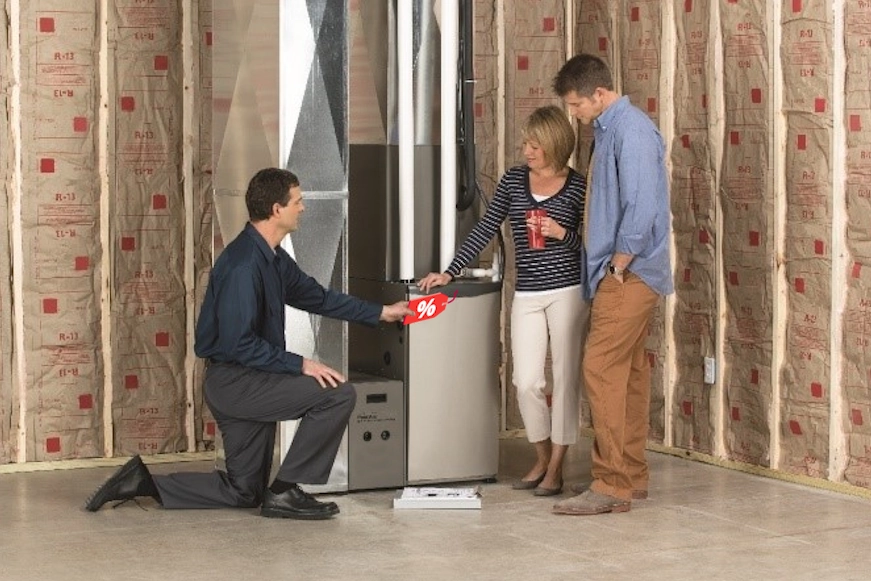Choosing the correct furnace size for your home ensures efficient heating and energy savings. A heating system that is too large or too small can lead to increased energy costs, reduced comfort, and strain on your system. Furnace size directly affects the ability to maintain a comfortable temperature throughout your home.
If your home furnace is running a lot, it could be a sign that your system is overburdened or incorrectly sized for your home’s needs. Several factors determine furnace size, and the goal is to find a balance between heating capacity and energy consumption. This guide will equip you with the essential details to help you choose wisely.
1. Importance of Furnace Size for Comfort and Efficiency
Selecting the right furnace size is important for maintaining consistent indoor temperatures and minimizing energy waste. An oversized heating system tends to cycle on and off too often, causing premature wear and increased energy costs. On the other hand, a unit that is too small will struggle to keep up with demand, resulting in insufficient heating. A properly sized furnace can provide better comfort by efficiently distributing heat throughout the home. It is important to note that proper sizing should take various elements into account.
2. Calculate the Square Footage of Your Home
The first step in determining the size of your living space is to calculate the total square footage. This will give you an initial idea of how much heating capacity is needed. Larger homes require furnaces with higher heating capacities, while smaller homes can function well with smaller units. The square footage of your home is a key determinant, but other factors also need to be considered for accurate sizing.
3. Factor in Climate and Insulation
Climate plays a significant role in furnace sizing. Colder regions demand more powerful furnaces to handle longer winters, while a home located in a warmer climate can manage with a smaller heating system. The insulation of your home directly influences how efficiently a furnace works. Well-insulated homes retain heat better, meaning a less powerful heating system is needed. If your insulation is lacking, consider upgrading it to improve energy efficiency and ease the load on your heating system.
4. Additional Factors That Affect Furnace Size
When determining size, factors such as ceiling height, room layout, and the number of windows should not be overlooked. Homes with high ceilings or many windows may require larger furnaces to heat the space effectively.
Key points to consider include:
- Room layout: Open floor plans typically require different heating strategies compared to homes with segmented rooms.
- Window quality: Older, drafty windows can lead to more heat loss and demand for more heating power.
5. Seek Professional Assistance for Accuracy
To avoid the common mistake of choosing the wrong furnace size, it is recommended that you consult a professional. A heating expert can perform a load calculation, taking into consideration all variables to determine the exact furnace capacity needed. Professional assessments help eliminate guesswork and ensure that you select a heating system that fits your home’s needs perfectly. Having the correct size will enhance comfort, reduce energy consumption, and prolong the life of your heating system.
Finding the ideal furnace size for your home is essential to maintaining an energy-efficient and comfortable living space. If your home furnace is running a lot, it may be time to reassess its size to ensure it’s performing optimally. Proper heating system sizing is key to maintaining a balance between warmth and efficiency, ensuring your system operates at its best for years to come.





